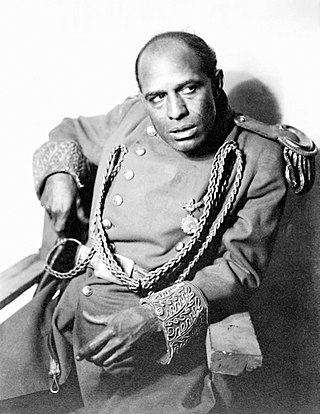
The Emperor Jones is a 1920 tragic play by American dramatist Eugene O'Neill that tells the tale of Brutus Jones, a resourceful, self-assured African American and a former Pullman porter, who kills another black man in a dice game, is jailed, and later escapes to a small, backward Caribbean island where he sets himself up as emperor. The play recounts his story in flashbacks as Brutus makes his way through the jungle in an attempt to escape former subjects who have rebelled against him.

Evening Shade is an American sitcom that aired on CBS from September 21, 1990, to May 23, 1994. The series stars Burt Reynolds as Woodrow "Wood" Newton, an ex-professional football player for the Pittsburgh Steelers, who returns to rural Evening Shade, Arkansas, to coach a high-school football team with a long losing streak. Reynolds personally requested to use the Steelers as his character's former team because he was a fan.

Raiford Chatman "Ossie" Davis was an American actor, director, writer, and activist. He was married to Ruby Dee, with whom he frequently performed, until his death. He received numerous accolades including an Emmy, a Grammy and a Writers Guild of America Award as well as nominations for four additional Emmy Awards, a Golden Globe Award, and Tony Award. Davis was inducted into the American Theater Hall of Fame in 1994 and received the National Medal of Arts in 1995, Kennedy Center Honors in 2004.
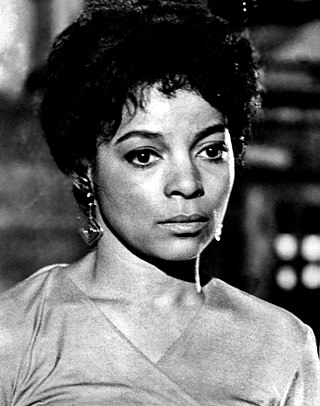
Ruby Dee was an American actress, poet, playwright, screenwriter, journalist, and civil rights activist. Dee was married to Ossie Davis, with whom she frequently performed until his death in 2005. She received numerous accolades, including an Emmy Award, a Grammy Award, an Obie Award, and a Drama Desk Award, as well as a nomination for an Academy Award. She was honored with the National Medal of Arts in 1995, the Screen Actors Guild Life Achievement Award in 2000, and the Kennedy Center Honors in 2004.
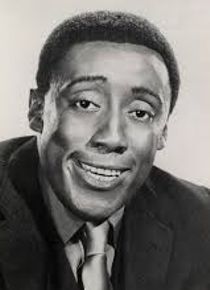
Godfrey MacArthur Cambridge was an American stand-up comic and actor. Alongside Bill Cosby, Dick Gregory, and Nipsey Russell, he was acclaimed by Time in 1965 as "one of the country's foremost celebrated Negro comedians."
The Interviews: An Oral History of Television is a project of the nonprofit Academy of Television Arts & Sciences Foundation in North Hollywood, Los Angeles, that records interviews with notable people from all aspects of the television industry.

Cotton Comes to Harlem is a 1970 American neo-noir action comedy film co-written and directed by Ossie Davis and starring Godfrey Cambridge, Raymond St. Jacques, and Redd Foxx. The film, later cited as an early example of the blaxploitation genre, is based on Chester Himes' novel of the same name. The opening theme, "Ain't Now But It's Gonna Be", was written by Ossie Davis and performed by Melba Moore. The film was one of the many black films that appeared in the 1970s and became overnight hits. It was followed two years later by the sequel Come Back, Charleston Blue (1972).
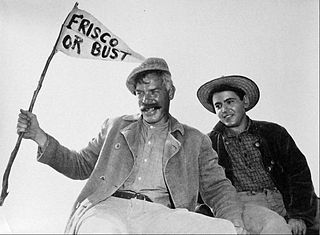
The Great Adventure is an American historical anthology series that appeared on CBS for the 1963–64 television season. The initial 13 episodes were narrated by Van Heflin, with the second grouping of 13 episodes narrated by Russell Johnson. The series, which featured theme music by Richard Rodgers, presented a weekly one-hour dramatization of the lives of famous Americans and important events in American history.

Proud is a 2004 film directed by Mary Pat Kelly and stars veteran actor and activist Ossie Davis, in his final film performance. The motion picture was filmed in Elmira NY and Buffalo, NY. The screenplay was written by Kelly based on her non-fiction book Proudly We Served (1999).
The 16th Annual Tony Awards took place on April 29, 1962, in the Waldorf-Astoria Grand Ballroom in New York City. The ceremony was broadcast on local television station WCBS-TV in New York City. The Masters of Ceremonies were Ray Bolger and Robert Preston.
The Emperor Jones may refer to:
Crossroads Theatre is an American residence theater company in New Brunswick, New Jersey, focused on the Black American experience and the African diaspora. It is in residence at the newly built New Brunswick Performing Arts Center, which opened in the city's Civic Square in 2019.
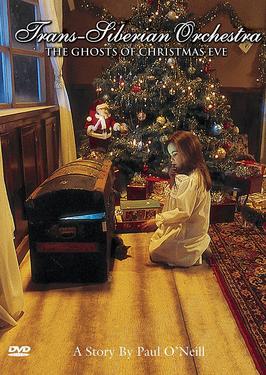
The Ghosts of Christmas Eve is a 1999 made-for-television film showcasing a Christmas music performance by Trans-Siberian Orchestra, starring Ossie Davis and Allie Sheridan. Guest performers included Michael Crawford and Jewel. Other performers include Bob Kinkel, Al Pitrelli, Chris Caffery, Johnny Lee Middleton, Jeff Plate, Tony Gaynor, Daryl Pediford and Tommy Farese.

Charles Davis was an American jazz saxophonist and composer. Davis played alto, tenor and baritone saxophone, and performed extensively with Archie Shepp and Sun Ra.
Dick Campbell, born Cornelius Coleridge Campbell, was a key figure in black theater during the Harlem Renaissance. While a successful performer in his own right, Campbell is best known as a tireless advocate for black actors in general. As a theater producer and director, he helped launch the careers of several black theater artists, including Ossie Davis, Frederick O'Neal, Loften Mitchell, Helen Martin, and Abram Hill.
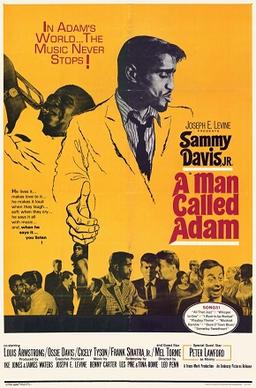
A Man Called Adam is a 1966 American drama musical film directed by Leo Penn and starring Sammy Davis Jr. It tells the story of a self-destructive jazz musician, played by Davis, and his tumultuous relationships with the people in his life.
Freedom Road was a 1979 American TV historical drama mini-series starring boxer Muhammad Ali and Kris Kristofferson, based on the 1944 novel by Howard Fast and directed by Jan Kadar. Running for four hours, it was first broadcast on NBC on October 29 and 30, 1979.

Look Up and Live was a 30-minute television anthology series. The series was produced in cooperation with the National Council of Churches and aired on CBS from January 3, 1954 to January 21, 1979. It was a non-denominational Sunday morning religious show that covered issues from multiple perspectives, avoiding heavy proselytizing. The series' success in reaching young people with inspirational messages was due partially to the contemporary musicians and celebrities featured on the show.

Hisham Tawfiq is an American actor, best known for playing Dembe Zuma, part of the security detail and very close friend to Raymond "Red" Reddington in NBC's The Blacklist.
Gone Are the Days! or Purlie Victorious is a 1963 American comedy-drama film starring Ossie Davis, Ruby Dee and Godfrey Cambridge. It is based on the 1961 Broadway play Purlie Victorious, which was written by Davis. Davis, Dee, Cambridge, Beah Richards, Sorrell Booke and Alan Alda, reprised their roles from the Broadway production.












